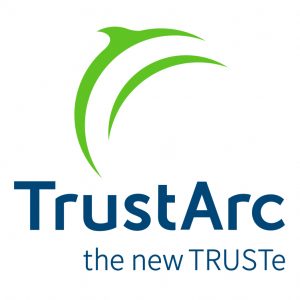Home
Use our global calendar of privacy events to locate an event near you.
FILTER BY

V. INTERDISCIPLINARY WORKSHOP: PRIVACY, DATA PROTECTION & SURVEILLANCE
HIIG | French st. 9 | 10117 Berlin
5 December 2017 | 12 am – 6 pm
With the fifth workshop we want to offer young scientists the opportunity to present and discuss current research work in the very broad and diverse research field Privacy, Surveillance and Data Protection in an interdisciplinary round. We look forward to essay projects and dissertation projects, theoretical and empirical work, analyzes as well as solutions – and it may explicitly be work in progress. In addition to discussing open research questions, the workshop will focus on critical reflection on the premises of one’s own research, one’s own theory school (s) and one’s own discipline (s).
In particular, we are looking forward to grappling with the consequences of research published in the end of 2016 by Deirdre Mulligan, Colin Koopman and Nick Doty on the topic “Privacy is an essential contested concept: a multi-dimensional analytic for mapping privacy” What follows is the conclusion that privacy – and the same certainly applies to surveillance and data protection – is a fundamentally controversial concept, for research on theories, for individual and collective use, for societal negotiation but also for regulation and interpretation of laws? And what does privacy and privacy by design mean against this background?
participation
If you are interested in attending the event, we kindly ask you to complete our registration form at the bottom of this page by Monday, 13.11.2017 specifying whether you would like to participate as a listener or speaker. Speakers are requested to submit a title and an extended abstract (approximately 800 words) of the presentation, the max. Should take 15 minutes to specify. You are also welcome to provide information on your disciplines, areas of interest and research priorities. Within the basic subject matter you are completely free to choose your area and put a focus.
The workshop program will be open to all registered participants until 27.11.2017.
We are looking forward to your coming and your contributions.
Events
13/11/2017 Registration deadline
13.11.2017 Deadline for submission of abstracts
20.11.2017 Feedback on the acceptance of the proposals
27.11.2017 Program of the workshop
05.12.2017 Workshop
Unfortunately, we can not reimburse any travel or accommodation expenses.
For questions, please contact: [email protected]

When Columbus beat out 77 other cities to win a $50 million grant in the Smart Cities Challenge, it spawned a community conversation about the future of mobility. Suddenly, terms such as “smart mobility,” “connected electric automated vehicles” and “truck platooning” became a part of the community lexicon. Recent studies predict that 71 million autonomous cars will be sold by 2035, with 75% of vehicles being autonomous by 2040. Are automated vehicles our future? And what does it mean to “reinvent mobility”?
Along with Smart Columbus and the Columbus Partnership, we have assembled a distinguished group of speakers to address the regulatory and infrastructure challenges we face as we embrace the opportunities presented by the Smart Cities Grant and technology advancements in mobility. Our panel of speakers will be led by former US Secretary of Transportation Rodney E. Slater, who will make introductory remarks on the future of transportation and mobility. We have assembled two panels – focused on the regulatory and infrastructure challenges and opportunities of autonomous vehicles – featuring speakers from the Ohio Department of Transportation, OSU Center for Automotive Research and American Electric Power.
Please join us for this engaging and inspiring discussion on the future of our community and our way of life.
Panelists include:
- Rodney E. Slater, former US Secretary of Transportation, and Partner, Squire Patton Boggs
- Mark Patton, Vice President, Smart Columbus
- Jordan Davis, Director, Smart Columbus
- James Barna, Chief Engineer and Assistant Director, Transportation Policy, State of Ohio
- Giorgio Rizzoni, OSU Director for Center for
Automotive Research
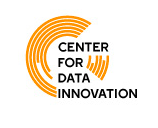
From government chatbots that respond to citizen queries to municipal infrastructure that predicts necessary repairs, the public sector of tomorrow has the potential to be significantly smarter than it is today. But improvements will not happen soon enough or extensively enough unless policymakers insist on these changes. While some government agencies have taken first steps towards smarter government, all levels of government face significant obstacles that limit their ability and willingness to embrace data-driven innovation. Given the magnitude of the benefits at stake—more responsive government, new and more efficient public services, and increases in public safety, public health, and quality of life—policymakers should take steps to overcome these obstacles and accelerate the transformation to smarter government.
Join the Center for Data Innovation for a conversation with public and private sector leaders about how data, artificial intelligence, and connected technologies can make all levels of government smarter and the steps policymakers should take to enable these changes.
Panel 1: Building Smart Communities
The growing web of connected devices is creating many opportunities for government agencies to collect and analyze vast quantities of data to improve services, make better decisions, and automate processes. But while there have been some successful early initiatives, most communities still have a long way to go before they will have fully-integrated smart systems at every level of government. What should local governments be doing today to prepare for a more connected future? How should the state and federal government support local leaders? And how can policymakers ensure the benefits of smart communities are enjoyed by all citizens, from dense urban centers on the coasts to rural towns in the heartland?
Panel 2: Using AI to Automate Government
Advances in artificial intelligence (AI) are creating opportunities to increase productivity while increasing value, in part by automating routine processes and extracting insights from complex datasets. Where are the initial opportunities to use AI in government, and what impact will this have on government agencies? Moreover, what steps should government executives take to integrate AI into their agencies to make them smarter, more efficient, and more effective than ever before?
Panel 3: Establishing Government as a Digital Leader
When it comes to technological adoption, too often government agencies are the laggards with the private sector instead being the one to set the pace of change. However, this does not have to be the case. How can the government reclaim the mantle of digital leader, and more rapidly embrace emerging technologies, such as data analytics and the Internet of Things? How have some agencies managed to incorporate data-driven innovation into their mission, and how can others replicate their successes?
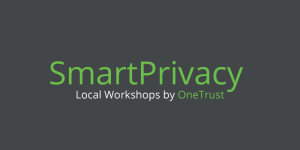
SmartPrivacy is a practitioner-focused, half day local workshop where privacy professionals can learn from each other about tools and best practices to operationalize their privacy programs.
The workshop is hosted by OneTrust, however, is open to any privacy professional regardless of tool or template of choice.
A combination or structured educational sessions, peer-lead discussions, and networking allow organizations to share practical tips on topics such as GDPR compliance, how to perform a data inventory, identifying the key stakeholders/privacy champions within your organization, and how to get buy-in from executives.
Attendees can expect to receive 4.5 CPE credit hours, the ultimate PIA/DPIA, Data Inventory & Mapping, and Data Subject Rights Handbooks, access to free software tools, how-to guides, and best practices documents on the topics covered.
Workshop Agenda:
• Lunch & Registration
• Welcome & Introductions
• PIA & DPIA Workshop
• Data Mapping Workshop
• Data Subject Rights Workshop
• OneTrust Demo
• Networking & Cocktails
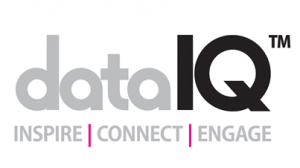
This is the first GDPR conference focused entirely on how RegTech will help brands overcome the challenges of GDPR
There’s been so much talk over the fines, the procedures, the opportunities, the challenges, and what you need to know about the incoming legislation.
But have you ever wanted to get all the key GDPR technology solutions in one room to quiz them on how they can help make your job easier come May 2018?
Now’s your chance (and best of all – it’s completely free).
Why it matters:
In recent research by DataIQ, identifying the appropriate technology for GDPR compliance was ranked as the biggest challenge facing organisations after the interpretation of the regulation itself.
Getting it right will build confidence and trust with customers, driving brand and business value.
Getting it wrong then fines could be the least of the challenges. It will involve handling vast volumes of data generated across channels, and the rigour needed in reporting accurately all customer records, consents and interactions.
This important half-day event will help users understand the key technology solutions available and how they will support data compliance in their organisations.
The conference will consist of a series of presentations from some leading solution providers as well as a case study from global information giant RELX of its successful RegTech implementation across multiple businesses and countries.
What’s covered?
The RegTech solutions covered will include:
– Data discovery, mapping and documentation
– Permission management and preference centres
– Accessibility and portability
– Customer data platforms and single customer views
Request a place:
This is a complimentary event and there is no charge to attend. However, please note that this event is designed for senior data-driven professionals from client-side, in-house teams so we will not accept attendance requests from anyone working for a supplier, agency, consultancy or service provider.
Location:
This event will take place at the Sofitel St James | 6 Waterloo Pl | St. James‘s | London | SW1Y 4AN.
The nearest tube stations are Charing Cross, Leicester Square, Piccadilly Circus and Embankment.

Call For Papers |
|
“Privacy” is a well-researched yet highly disputed concept in Western scholarship. While most privacy research comes from and concentrates on Western liberal societies, great potential of privacy studies beyond this traditional framework still remains largely unexplored. The framework of Western liberal societies may therefore be seen not only as a “comfort zone” of privacy studies, but also as a barrier that often limits the potential of the research. This conference aims at elucidating the problems and the perspectives of privacy studies beyond the traditional liberal framework by bringing together scholars and PhD students who work on the concept of “privacy” in the context of Late Socialist Eastern and East-Central Europe.
A common challenge to privacy researchers of non-Western societies, especially if they come from such a society, is to refute the erroneous misconception of the absence of “privacy” in non-liberal societies, and to embrace the constructions of “privacy” that these local societies offer. This conference endeavors to create a dialogue between scholars and PhD students from all fields of humanities and social and political sciences to discuss the challenges of transgressing the borders of liberal frameworks, the strategies to cope with these challenges, and the perspectives for privacy research that such transgressions offer.
The use of this concept in the context of Late Socialist Eastern and East-Central Europe leads to a range of questions that challenge liberal dichotomies and pave the way for alternative visions of “privacy”. These questions are particularly resonant now, in the centennial year of the October Revolution, when its consequences are debated anew. While the liberal concept of “privacy” usually fails in the framework of authoritarian regimes of post-war Europe, the region offers a diversity of other impulses similar to the liberal idea of “privacy”. In the post-war years, Socialist Eastern and East-Central Europe witnessed the expansion of the material as well as immaterial private sphere, which did not only come as a result of the changed world order and subsequent transformations of Socialist societies, but can also be seen as a process that was meticulously planned, carried out, and controlled by the authorities of respective countries in an attempt to stabilize their regimes in the process of de-Stalinization. However, we should also consider whether the private sphere, so benevolently tolerated by Socialist states, continuously developed into an enfant terrible that nurtured not only stability, but also the disruptive forces of dissidence and civil rights movements, which ultimately undermined the Socialist bloc from within. These stabilizing and simultaneously disruptive currents of “privacy” within non-liberal societies are of particular interest, as they elucidate the multifaceted nature of this concept.
Participants are therefore asked to revisit and question the concept of “privacy” in liberal contexts as well as within the frameworks of Late Socialist Eastern and East-Central Europe by renegotiating the underlying categories within a certain society. The conference will specifically examine ways of addressing the concepts of “privacy” and “publicity” in said contexts by debating the applicable frameworks and by challenging existing approaches. It will further explore the potential of “reverse applicability” by discussing how privacy research in liberal contexts can benefit from other frameworks of privacy—the transfer that is of particular interest now, in the “post-privacy age”, when Snowden’s revelations elucidated the approximations of Western liberal states to the authoritarian models of the past and the present. In the light of such developments, the examination of Late Socialist authoritarian societies becomes advantageous for our understanding of contemporary privacy paradigms.The conference will focus on three aspects of the problematics of the private/public dichotomy in Late Socialist societies of Eastern and Central Europe. Subtopics of interest include (but are not limited to):
Political variations of privacy: Art and privacy: Privacy in Socialist societies: Information for applicants: We will contribute to the accommodation and travel costs of the participants. The conference will be based on pre-circulated papers that should be submitted until October 1, 2017. We plan to assemble an edited volume on the basis of the conference proceedings.
For any further questions, please contact Tatiana Klepikova ([email protected]). For further information about the DFG Research Training Group, please address http://www.privatheit.uni-passau.de/en/.
|
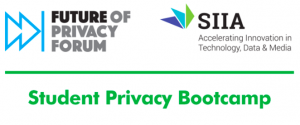
The Future of Privacy Forum (FPF) and the Software and Information Industry Association (SIIA) are partnering to present a “Student Privacy Boot Camp” for K-12 ed tech companies.
The goal of the training program is to gather ed tech companies – startups, small- and medium-sized companies – for detailed legal and policy presentations to help them understand the regulatory requirements and industry best practices to properly handle student educational data in a complex and rapidly changing environment.
Presenters and panelists come from individual schools or districts, the Department of Education, and a variety of education-focused advocacy and policy organizations.
No more than 2 people per ed tech company may attend the event.
Draft Agenda
9:00 – 9:20 AM
Welcome Comments and Introductions
9:20 – 9:50 AM
Hypothetical
9:50 – 10:45 PM
Understanding Parent, Advocate, and Policy Concerns
- Chip Slaven, Counsel to the President and Senior Advocacy Advisor, Alliance for Excellent Education (moderator)
- Doug Levin, Founder and President, EdTech Strategies, LLC
- Chad Marlow, Advocacy and Policy Counsel, ACLU
- Elana Zeide, Visiting Assistant Professor, Seton Hall University, School of Law
10:45 – 11:45 AM
FERPA, COPPA, and PPRA
- Michael Hawes, Director of Student Privacy Policy, U.S. Department of Education
- [Speaker TBD], Federal Trade Commission
11:45 – 12:30 PM
Hypothetical
12:30 – 1:30 PM
Lunch
1:30 – 2:15 PM
View from the Regulators
- Noelle Ellerson Ng, Associate Executive Director, Policy & Advocacy, AASA: The School Superintendents Association (moderator)
- Michael Hawes, Director of Student Privacy Policy, U.S. Department of Education
- [Speaker TBD], Federal Trade Commission
2:15 – 3:15 PM
State Laws
- Linnette Attai, Founder, PlayWell LLC
- Brendan Desetti, Senior Government Relations & Stakeholder Relations Manager, D2L
- Amelia Vance, Policy Counsel, Future of Privacy Forum
3:15 – 3:30 PM
Break
3:30 – 4:15 PM
Security
- Doug Levin, Founder and President, EdTech Strategies, LLC
- Jim Siegl, Technology Architect, Fairfax County Public Schools
4:15 – 5:15 PM
Needs of the Buyer: Privacy Policies and the Role of Contracts
- Linnette Attai, Founder, PlayWell LLC (moderator)
- Teddy Hartman, Coordinator of Data Privacy, Howard County Public Schools
- David Rubin, Attorney at Law, David B. Rubin, P.C.
- Corey Kispert, Information Security Officer, Colorado Department of Education
5:15 – 5:30 PM
Closing and Next Steps
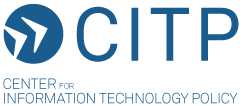
This event in Washington, DC describes the launch of CITP’s initiative on artificial intelligence, machine learning, and public policy. The initiative will examine a range of policy issues raised by artificial intelligence, including how to ensure the application of AI is fair and governable; the impact of AI on the economy and jobs; how AI will affect free expression and human rights; how to increase the diversity of the AI workforce; effects of AI on security and privacy; and so on. This event will include introductions to these policy areas from Princeton University experts, and discussion.

This event in Washington, DC describes the launch of CITP’s initiative on artificial intelligence, machine learning, and public policy. The initiative will examine a range of policy issues raised by artificial intelligence, including how to ensure the application of AI is fair and governable; the impact of AI on the economy and jobs; how AI will affect free expression and human rights; how to increase the diversity of the AI workforce; effects of AI on security and privacy; and so on. This event will include introductions to these policy areas from Princeton University experts, and discussion.
This event is sponsored by the Jerome C. Blum Memorial Fund

